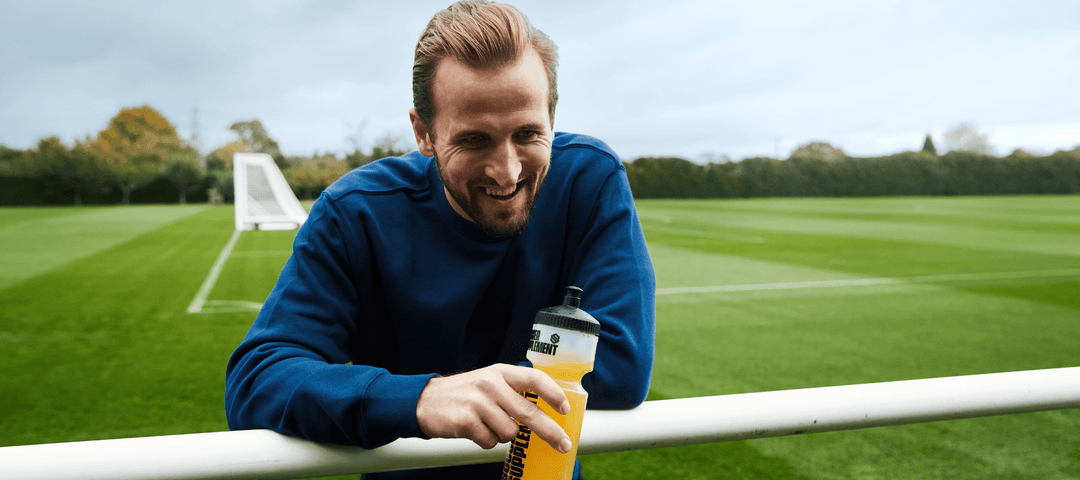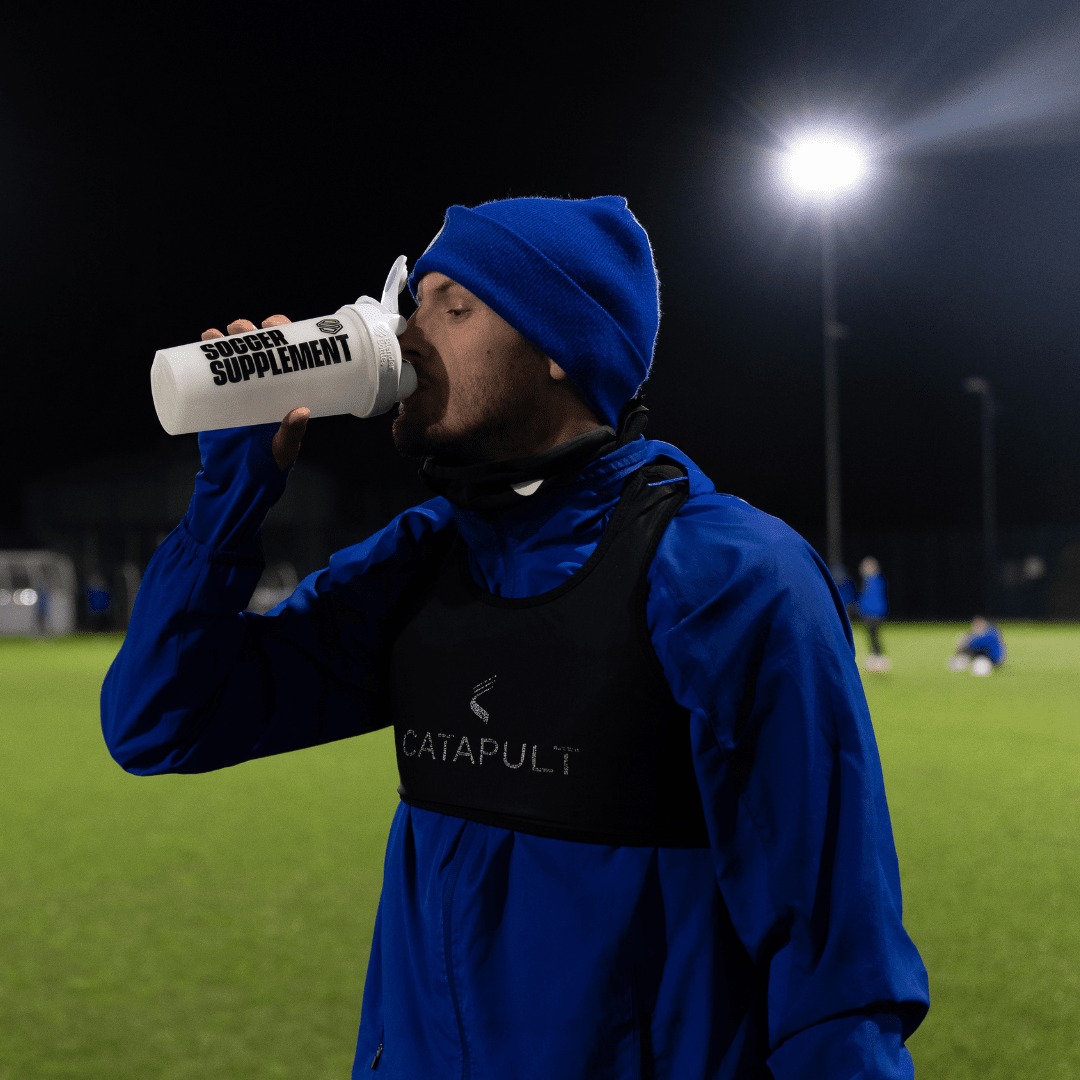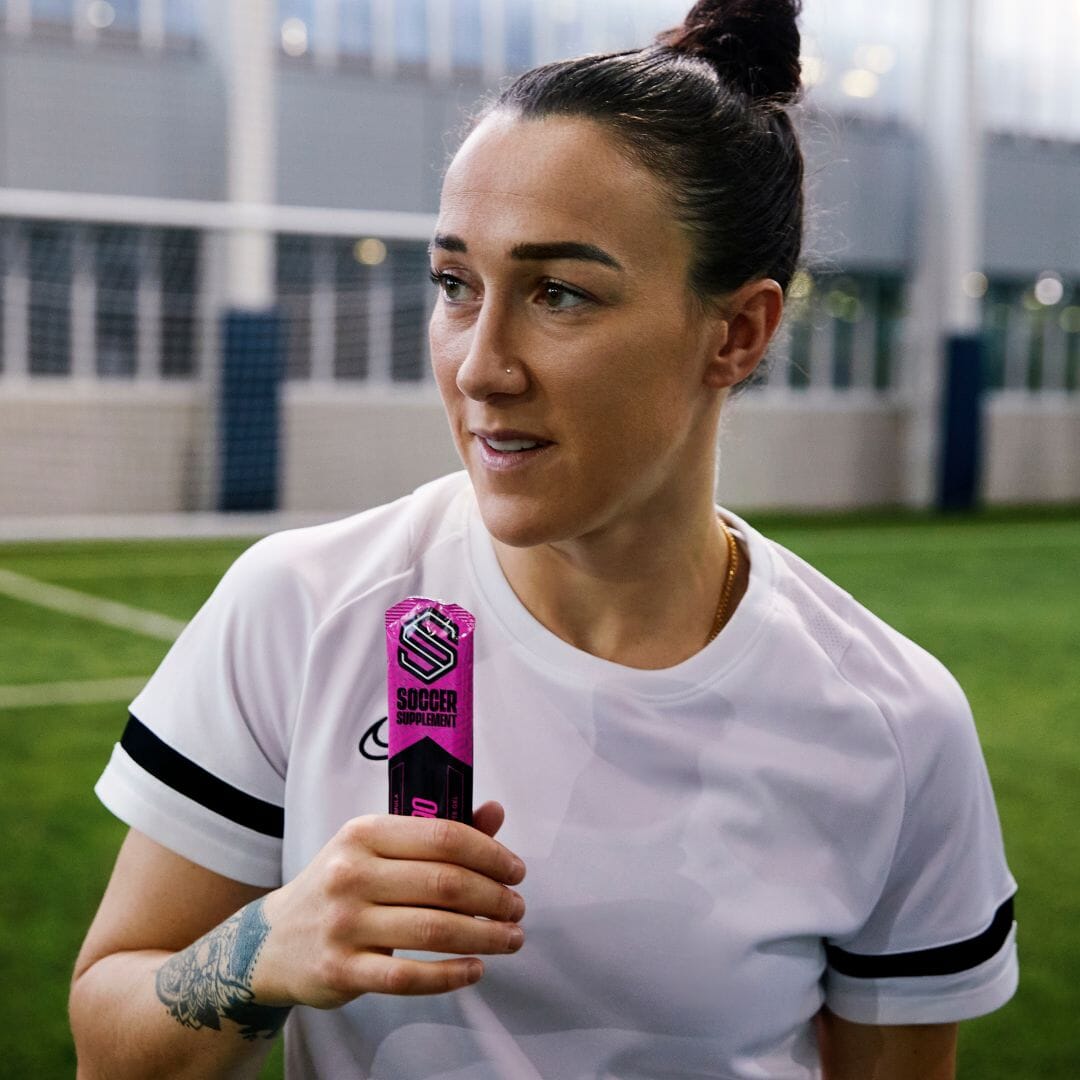Why is recovery important?
Whether you are a Premier League® professional or a Sunday league striver recovering between training sessions and games is critically important, not only for your performance but for your health, to avoid injury, and for overall enjoyment. No one likes waking up feeling stiff and sore the day after a game.
Professionals are often required to play multiple 90-minute games per week. Similarly Sunday league teams may experience the same during the summer months when they have to catch up on postponed games from the winter.
Such short periods between games (2 - 5 days) places an increased emphasis on recovery methods. Nutrition plays a key role in recovery and thankfully there has been some great research in this area in recent years.
Why do you need to recover after matches?
90 minutes of competitive football can have a significant affect on your body and mind.
A competitive football match will deplete energy stores, dehydrate and result in a degree of muscle damage. Mental fatigue is also often overlooked, yet is a huge part of recovery. So from a nutrition perspective recovery is dependent upon the player’s ability to restore energy levels with dietary carbohydrate and to a lesser extent fat (intramuscular triglycerides), to rehydrate with fluids, repair muscle with protein, and reduce inflammation and oxidative stress with antioxidants and possibly Omega 3.
Sufficient, high quality sleep, relaxing and generally ‘escaping’ football, whether that be spending time with family, loved ones or friends can certainly contribute to mental recovery. Interestingly nutrition may either directly or indirectly influence this. Directly, things like cherries or cherry juice, pistachios and high carbohydrate meals may benefit sleep and sleep quality, while enjoying meals with friends or your favourite foods can contribute indirectly.
How does nutrition aid recovery?
Putting the right nutrients into your body can help to improve recovery times.
It is important to maintain an appreciation for the fundamentals of nutrition during recovery. Consuming enough energy (kcal) is absolutely critical. Failing to meet energy requirements will further increase the breakdown of fuel stores and muscle, and will reduce immune function and slow rates of muscle protein repair.
It is possible to restore glycogen within 24-hours after exercise, although the muscle damage from eccentric contractions (decelerations, changing direction rapidly) and potentially from collisions during football matches results in structural alterations to the muscle tissue, particularly the glucose transporter GLUT4, which significantly impairs rates of muscle glycogen resynthesis. As a result it may take around 72-hours to completely restore muscle glycogen after a competitive football match.
In the first 3-hours of recovery glycogen stores in slow twitch muscle fibres occur significantly faster than in fast twitch muscle fibres, leading to the suggestion that the more explosive players within a team (wing backs, wingers, centre forwards) are likely to be effected most when playing a second game in quick succession. However, assuming there is at least 48-hours between each game there shouldn't be much difference.
Recovery Phase 1
Begin recovery at the final whistle.
Start immediately, don’t wait. Starting the recovery process immediately can increase the rate of refuelling by 3x compared to waiting until you get home, showered and changed. So having a practical, tasty, easy to consume recovery product, such as Recover90®, as soon as you step off the pitch as a phase 1 recovery is highly recommended.
The goal is to provide frequent dosages of carbohydrate. The total quantity of carbohydrate is the most important factor and the optimum dosage for maximal rates of glycogen resynthesis is 1.2 g/kg, although this is often difficult to attain in liquid form as it generally requires a massive amount of fluid (10% solution).
It is possible to stimulate muscle glycogen resynthesis to a similar extent with a lower carbohydrate dosage (0.7 – 0.9 g/kg) and the addition of a protein source such as Whey90® or Vegan Protein (0.2 – 0.4 g/kg). It would be useful to add a teaspoon (3 – 5 g) of creatine monohydrate and an electrolyte blend (~200 mg sodium) to the mix to support recovery, refuelling and rehydration. Our Recover90® has been specially developed to provide an ideal combination of protein, carbohydrate and electrolytes to improve your recovery between matches.
Certain components of recovery can be supported well before the final whistle. For instance a growing body of evidence now supports the fact that pre and during exercise carbohydrate intake can play a pivotal role in maintaining immune function during periods of intensified training and competition by stabilising blood glucose and the stress response. So consuming an adequate, carbohydrate-rich pre-match meal and roughly 90g/game from a variety of Hydrate90® drink, energy gels and snacks can help support your recovery efforts.
Recovery Phase 2
Continue recovery after your post-match shower.
After that initial recovery drink, phase 2 recovery should be consumed shortly after you have showered and changed in the changing rooms. This could be a small snack consisting of sandwiches or pitta bread pizzas, chicken or salmon skewers, healthy muffins, energy balls, rice cakes, cereal bars, fresh fruits and flavoured milk to provide the carbohydrate, protein, antioxidants and fluid required to support recovery. The addition of a Hydrate90® drink to supplement additional carbohydrate can increase total carbohydrate intake and maximise refuelling.
Depending on the time of kick off there maybe sufficient time to have another meal and even a snack prior to bed. At this stage, applying the same 3R principles of refuelling with carbohydrates such as pasta, rice or potatoes, repairing damaged muscle with protein-rich foods such chicken, salmon or beef and rehydrating with water, fruit juice or milk is important. Salmon and milk are highly recommended as they offer multiple benefits. Salmon not only contains protein, but also Omega 3 polyunsaturated fats that are known to reduce inflammation, swelling and soreness, while milk contains protein, carbohydrate and fluid to hit all 3R’s. If you don’t like salmon or can’t access it, then it’s probably a good idea to supplement with a few Omega 3 Softgels to obtain the same benefit.
Prior to sleep, adding a protein-rich snack containing 0.4 – 0.5 grams of protein per kilogram of protein is known to maximise overnight repair of muscle after intensive exercise. So the inclusion of a Whey90® protein shake with milk or mixed into Greek yoghurt is highly recommended. The addition of some berries or cherries within this snack, as a smoothie perhaps may also benefit recovery through a reduction in inflammation.
Will this really make a difference?
If you are sat there doubting the impact this intervention may have then think again. Researchers have studied this for many years and some have shown that athletes who use a similar high carbohydrate recovery intervention to the one outlined above were able to cover 1.1 km more than those that did not implement the recovery plans. Improved endurance, better performances, less soreness are all possible with the right recovery.
If you want to recover like a professional and prepare your body for the next challenge, check out our range of post-match supplements design of the precise needs of footballers.
Updated April 2022










